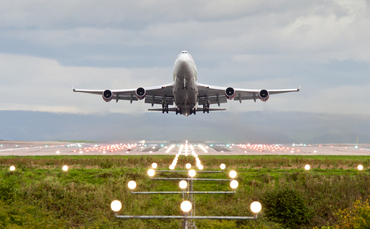The highest earners in Britain also produce the highest transport emissions, with around half of all CO2 emitted by road, shipping, air and rail travel in the UK generated by just five people, according to the Institute for Public Policy Research (IPPR).
Fresh analysis released today by the think tank estimates the richest 0.1 per cent of people living in Britain produce 22 times more greenhouse gas emissions from transport than low earners, and 12 times more than the UK average, due to behaviours such as frequent flying and high car use.
IPPR researchers analysed data from England’s National Travel Survey and the Scottish Household Survey from 2013 to 2021 in order to determine the transport behaviours of all adults in across the nation, including in Wales.
Their findings indicate that the highest polluting 10 per cent of the population are responsible for 42 per cent of all UK transport emissions.
Moreover, the analysis suggests income is directly linked to levels of mobility, and that people earning more than £100,000 travel at least double the distance each year compared to those with incomes under £30,000.
The research also found that people from deprived neighbourhoods travel less and therefore cause fewer emissions than those from more affluent areas. People with disabilities and those with non-white British ethnicity also travel less and produce less emissions, it said.
Dr Maya Singer Hobbs, senior research fellow at IPPR, said the UK’s transport system “both reflects and contributes to social inequalities”.
“Reducing emissions can actually tackle some of that injustice, if done fairly,” she added. “But while not everyone needs to make the same changes, those who are financially best off need to do the most.”
IPPR said the UK had made “limited progress” over the past three decades in reducing emissions from transport, which is now largest emitting sector of the UK economy, just ahead of energy.
As such it urged the next government to prioritise policy an investment support towards public transport, boosting active travel such as walking and cycling, as well as accelerating the transition to electric vehicles (EVs) in order to decarbonise transport in the UK.
Other specific IPPR policy recommendations for whichever political party leads the government after the upcoming General Election next month include placing higher taxes on the use of private jets, raising air passenger duty, and introducing a new tax on kerosene jet fuel in order to help drive down emissions from aviation.
Without action to reduce emissions associated with frequent flying, the UK risks missing its legally-binding emissions reduction targets for 2030 and 2035, it said.
Elsewhere, the report also calls for the current ban on municipal bus fleets to be lifted, in order to boost public transport by making franchising of buses easier, and for the rail network to be run in partnership with local leaders.
Moreover, the current 2035 ban on sales of new internal combustion engine (ICE) vehicles should be brought forward once again to 2030 – as had been the previous target date until the government’s rollback in October last year – and aligned EV manufacturing targets under the existing Zero Emissions Vehicle mandate, it added.
Stephen Frost, principal research fellow at IPPR, said fairness should be placed at the centre of the next government’s transport policy in order to encourage wider use of public transport and active travel and drive down emissions.
“By putting people at the heart of our approach to reducing Britain’s climate impacts we demonstrate both who is best placed to cut their emissions at the pace needed and how doing so can help tackle the underlying unfairness in who the transport system currently works for,” he said.
“Now is not the time to slow down our efforts to reach net zero, doing so just fuels existing transport inequalities,” he added. “The next UK government must step up the pace by delivering a credible, fair and people-focussed plan for more sustainable travel.”
Keep up to date with all the latest green business news by signing up to the free Daily and Weekly BusinessGreen Newsletters.

